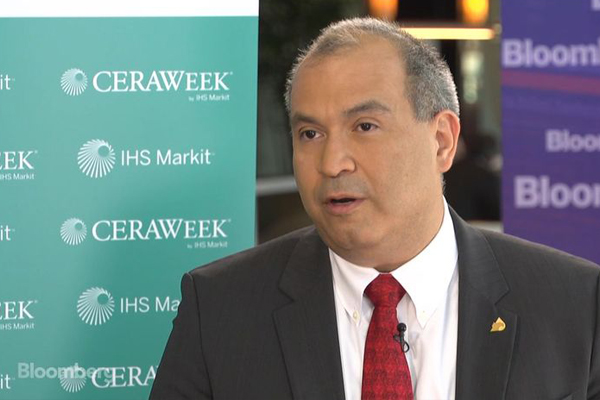Energy Reform Could Generate $1T in Foreign Investment for Mexico by 2040
FROM: Natural Gas Intelligence / Ronald Buchanan / 19 de marzo de 2018
Mexico’s energy reform could generate $1 trillion of direct foreign investment by 2040, said leaders of the industry lobby, Mexican Association of Hydrocarbon Companies, earlier this month.
The association, known by its Spanish acronym Amexhi, was presenting its Agenda 2040, a huge volume that reviews the industry’s past, from its origins at the beginning of last century; the present, including current uncertainties; and a future through 2040 that would “transform Mexico.”
Amexhi President Alberto de la Fuente admitted that the investment goal is ambitious.
The Agenda presupposes that power and hydrocarbons would account for 4% of gross domestic product by the target date. And, de la Fuente emphasized, it would require accurate instrumentation of the reform’s precepts, “as well as the resolution of challenges that are a legacy of the previous model.”
The defense of the Agenda would require four watchwords, he added: “Steadfastness, competence, transparency and knowledge.”
Amexhi has taken pains to remain neutral during the current campaigns for Mexico’s July 1 presidential election.
“All the candidates have shown interesting elements in their policy statements,” said Enrique Hidalgo, president of ExxonMobil Exploracion y Produccion Mexico, and the coordinator of Agenda 2040.
Some of the industry group’s sympathizers, however, have claimed that the pronouncements of the current leader in the race, Andres Manuel Lopez Obrador, who helms the left wing nationalist Morena party, has been less than steadfast in support of the reform. They also claim that his proposal for new refineries show a lack of understanding of the industry.
At the moment, the No. 2 in the race is Ricardo Anaya, leader of the National Action Party, the traditionally pro-business PAN. But Anaya has yet to issue any policy statements on energy.
Anaya also has embraced policies of left-wingers with whom he has formed an alliance. With them, he signed a statement of “No to the gasolinazo” — the liberation of gasoline prices.
Running third in the opinion polls is senior technocrat Jose Antonio Meade of the incumbent Institutional Revolutionary Party, the PRI. Meade was hand-picked by President Enrique Pena Nieto.
Meade’s loyalty to the energy reform has not been questioned. However, his loyalty to Peña Nieto has so far placed a political millstone around his neck. Pena Nieto is said to be the most unpopular Mexican president since political opinion polls were first published in the nation late in the 20th century as its democratic era began to dawn.
The democratic dawn has begun late for the former state monopolies of oil and natural gas, Petroleos Mexicanos (Pemex) and power, Comision Federal de Electricidad, the CFE.
Neither is free to set a budget, as Congress and the Finance ministry keep a tight grip on their spending. The Pemex and CFE unions, particularly that of Pemex, have corporate powers that go well beyond the defense of the interests of the workers in terms of pay and conditions.
The challenge are considerable, said senior analyst Arturo Carranza of Mexico’s National Institute of Public Administration. But, he added, the rewards are realistic.
Agenda 2040 proposes 15 bid rounds to lease oil and gas acreage. Since the 2013-14 reform was enacted, there have been two rounds featuring eight separate completed lease auctions. Three auctions are currently underway for the third round.
“But the pace has been stepped up and it can be pushed further,” Carranza said. “The country’s potential is beyond question for the industry. And the government has to do its part by identifying opportunities that the companies can grasp. In return, it can reap the benefits, such as royalties, on behalf of the nation.
“At the same time, the government has to cast off the restrictions on the budgets of Pemex and the CFE,” he added.
De la Fuente said at the presentation that about 80% of the nation’s oilfields are currently in decline, “but the best tool that’s available to revert the trend is the energy reform.”

FROM: Natural Gas Intelligence / Ronald Buchanan / 19 de marzo de 2018



